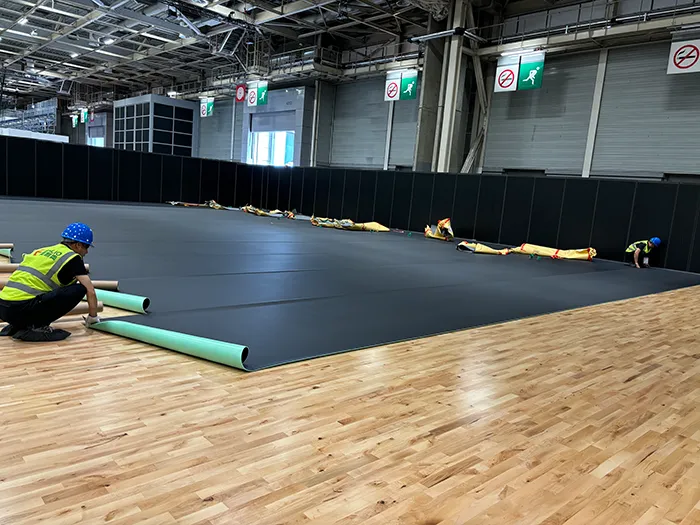10 月 . 08, 2024 23:19 Back to list
Cost Analysis of Flooring Options for Commercial Kitchens and Their Benefits
Understanding the Costs of Commercial Kitchen Flooring
When it comes to designing a commercial kitchen, one of the most critical yet often overlooked elements is the flooring. The right flooring can significantly enhance safety, hygiene, and overall functionality. However, it’s essential to consider the costs associated with different types of commercial kitchen flooring to make an informed decision.
Factors Influencing Costs
The cost of installing commercial kitchen flooring can vary widely based on several factors. First and foremost is the type of flooring material chosen. Common options include
1. Vinyl Flooring This option is popular due to its affordability and easy maintenance. Vinyl sheets or tiles can range from $2 to $5 per square foot, making it a cost-effective solution for many establishments.
2. Epoxy Flooring An epoxy coating offers a seamless surface that is resistant to spills and stains. While installation can be more expensive, typically ranging from $3 to $12 per square foot, the durability and ease of cleaning can justify the initial outlay.
3. Rubber Flooring Known for its comfort and slip-resistance, rubber flooring is another favored choice. The cost typically falls between $3 and $8 per square foot. Additionally, rubber flooring is gentle on the feet, which can be beneficial for staff standing for long hours.
4. Tile Flooring Ceramic or porcelain tiles are known for their aesthetic appeal and durability. However, they can be one of the more expensive options, ranging from $5 to $15 per square foot, especially if custom or high-end styles are chosen.
commercial kitchen flooring cost

5. Concrete Flooring Polished concrete is gaining traction in commercial kitchens due to its longevity and easy maintenance. Costs can vary widely based on the treatment and design, ranging from $2 to $10 per square foot.
Installation Costs
Beyond the material costs, installation fees must also be factored in. Labor costs can add $2 to $6 per square foot, depending on the complexity of the installation and the local market rates. It’s crucial to hire experienced professionals to ensure the flooring is properly installed, maximizing durability and compliance with safety standards.
Long-Term Expenses
While initial installation costs are important, it’s also vital to consider long-term expenses. Some flooring options may save money over time due to lower maintenance needs or higher durability. For instance, while vinyl may be cheaper upfront, it could require more frequent replacements compared to epoxy or rubber flooring.
Conclusion
In conclusion, choosing the right flooring for a commercial kitchen involves balancing upfront costs with long-term value. By considering factors such as material type, installation costs, and future maintenance, restaurant owners and managers can make an informed decision that enhances their kitchen’s functionality and safety. Ultimately, investing in high-quality flooring is an investment in the overall success and efficiency of the commercial kitchen environment.
-
Custom Pickleball Court Solutions Convert Tennis & Indoor Builds
NewsMay.30,2025
-
Outdoor Pickleball Court Costs Build & Install Pricing Guide
NewsMay.30,2025
-
Premium Pickleball Sports Courts Custom Design & Installation
NewsMay.30,2025
-
Indoor Pickleball Courts Tennis Court Conversion & Custom Builds Tempe
NewsMay.29,2025
-
Professional Pickleball Court Installation & Tennis Court Conversions
NewsMay.29,2025
-
Grey Synthetic surface-rubber prefabricated track
NewsMar.07,2025

